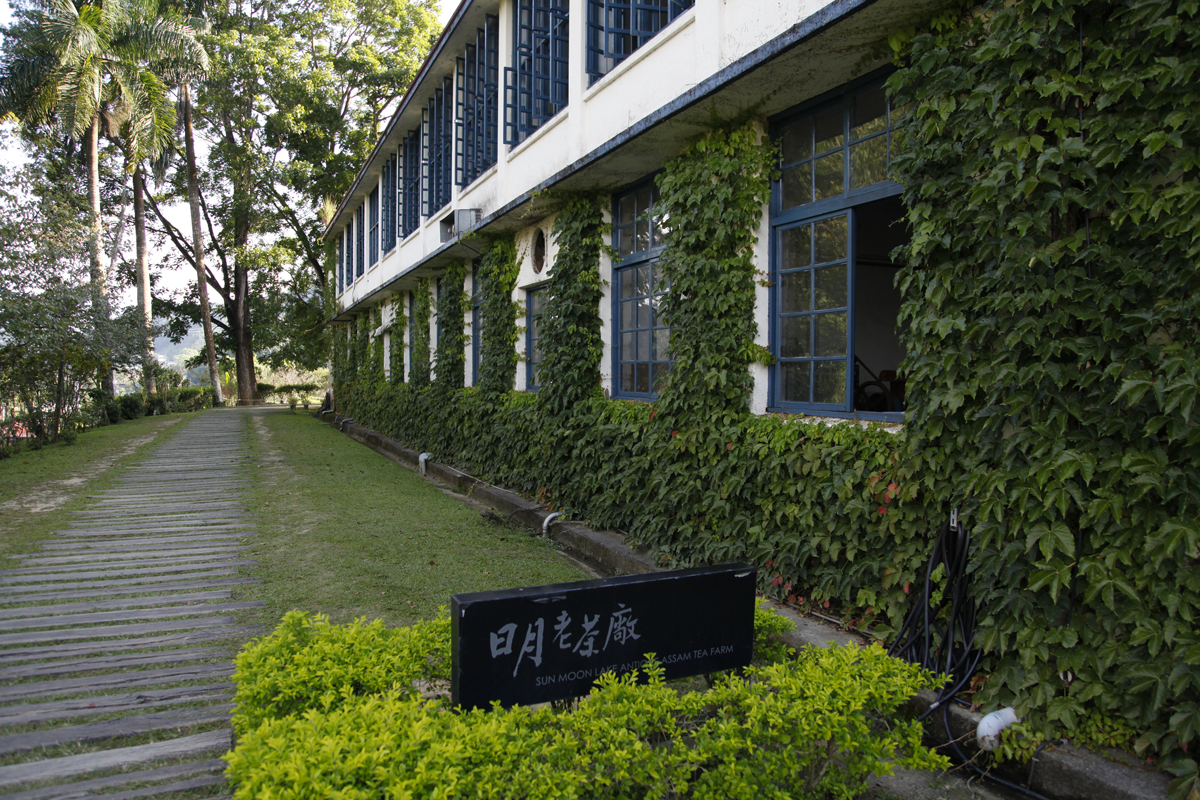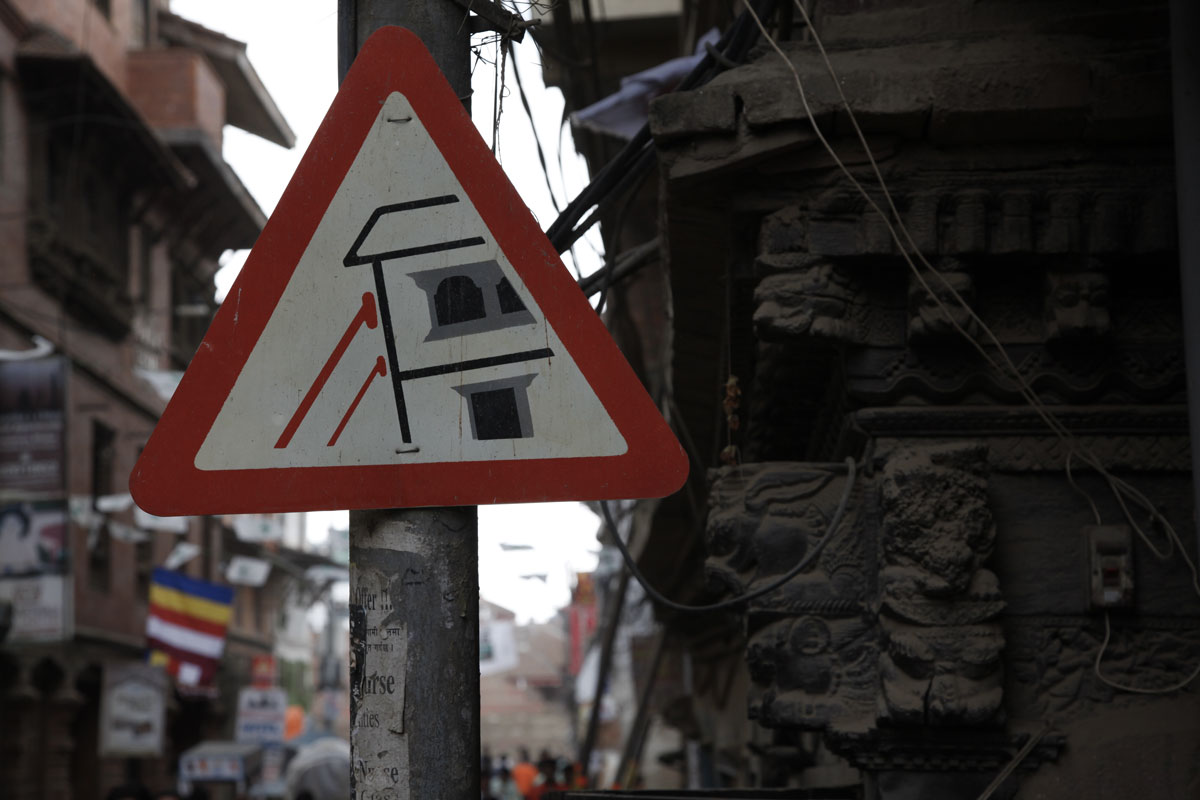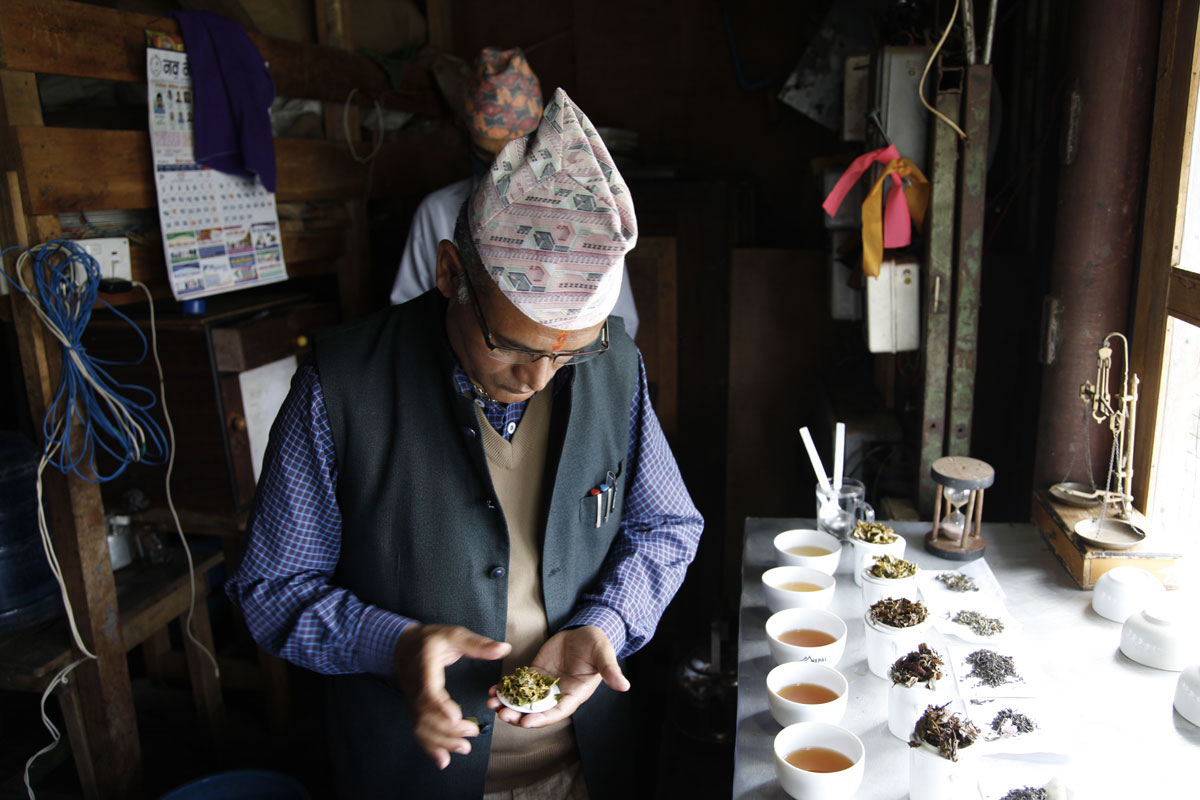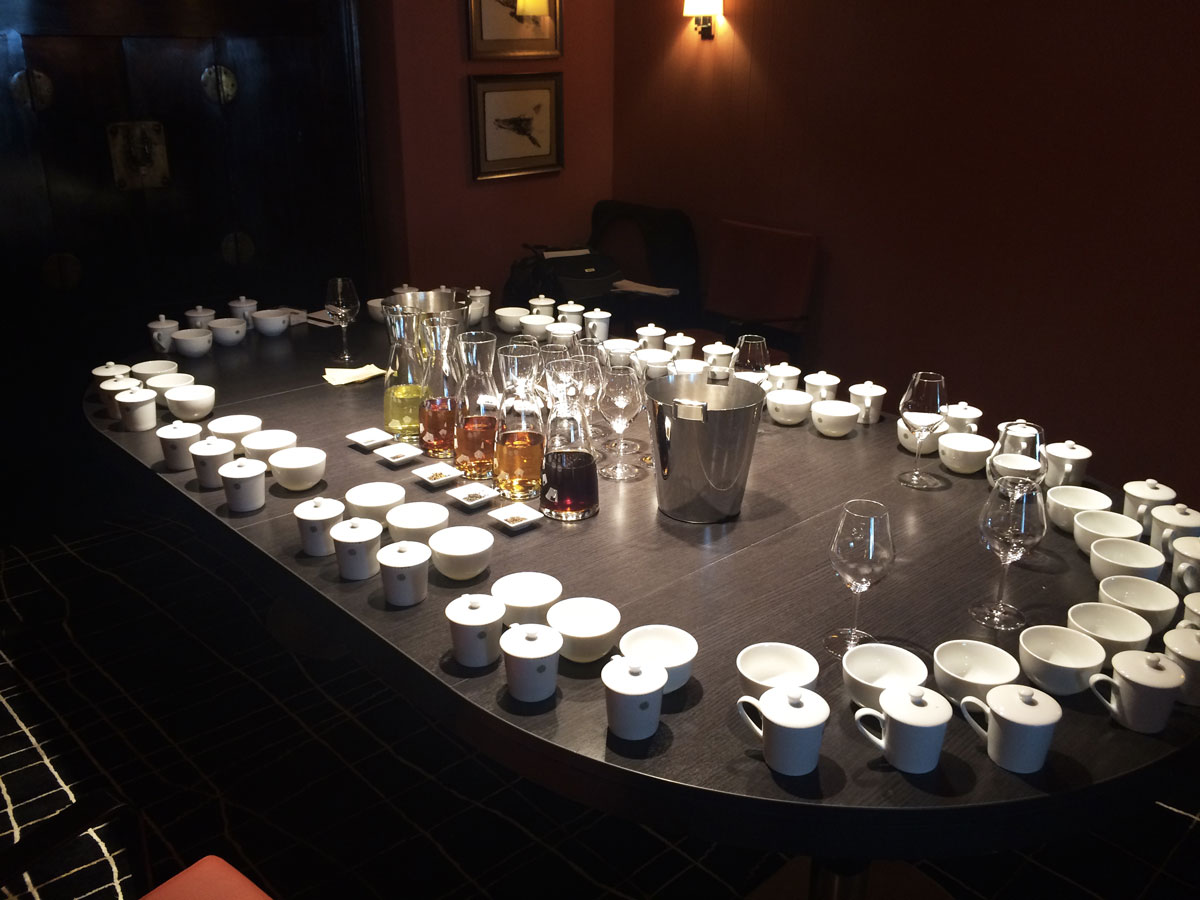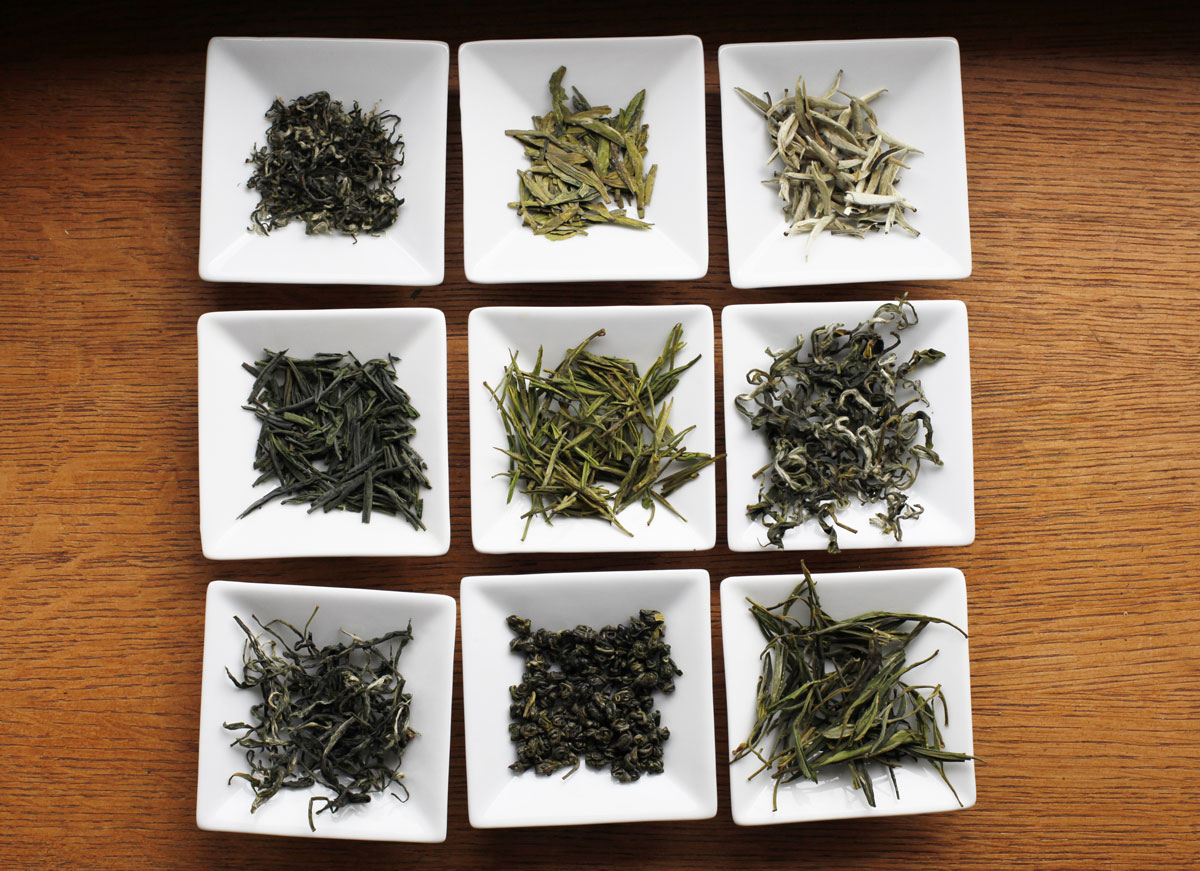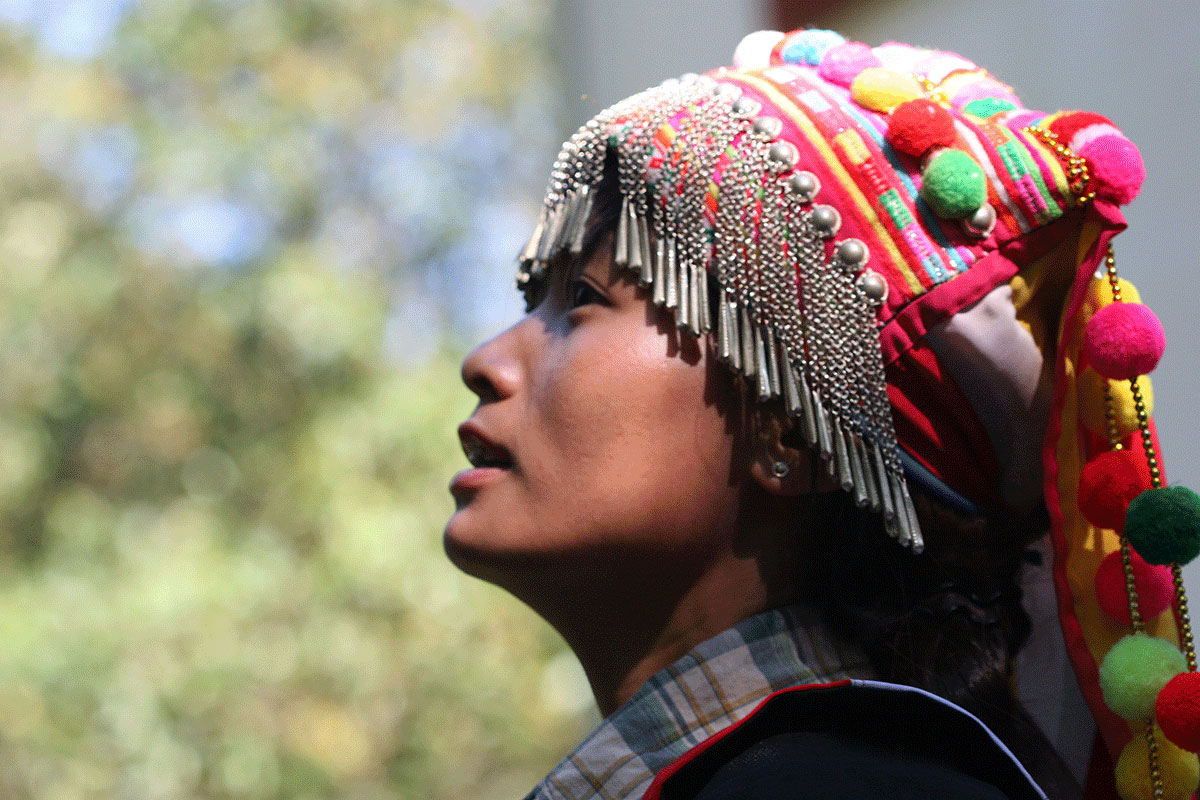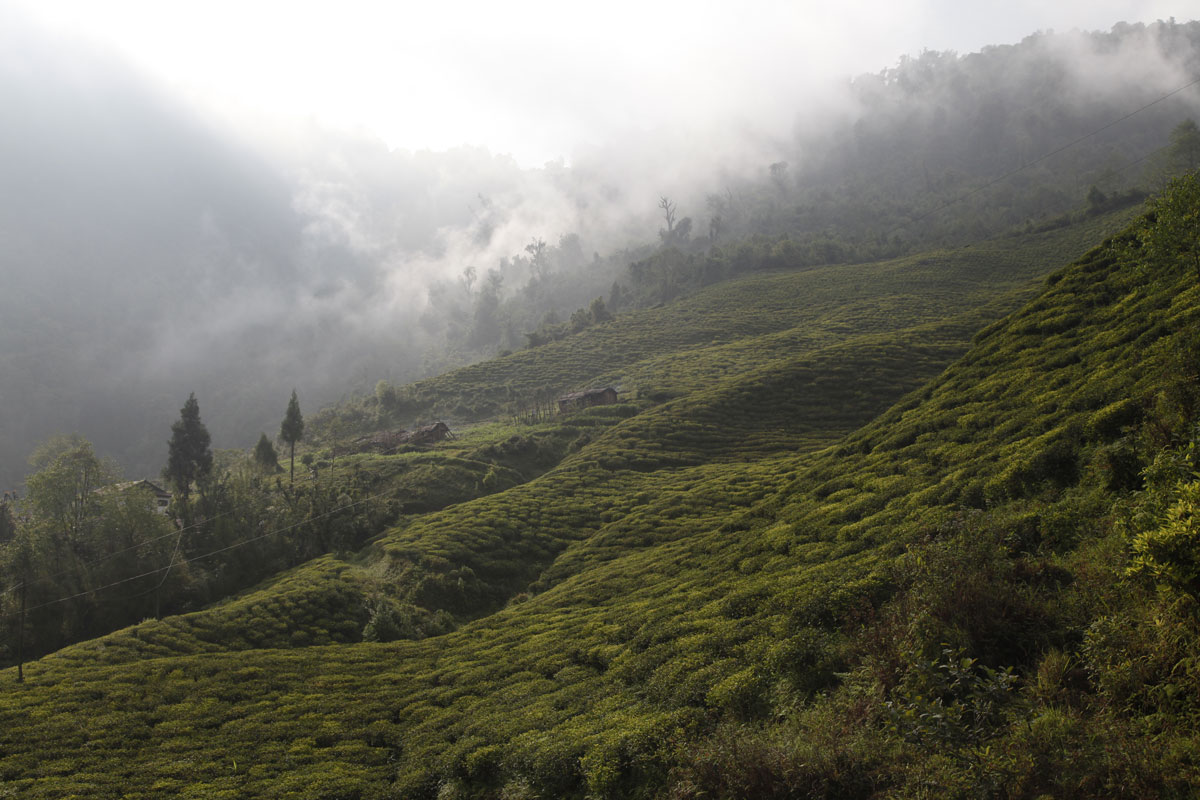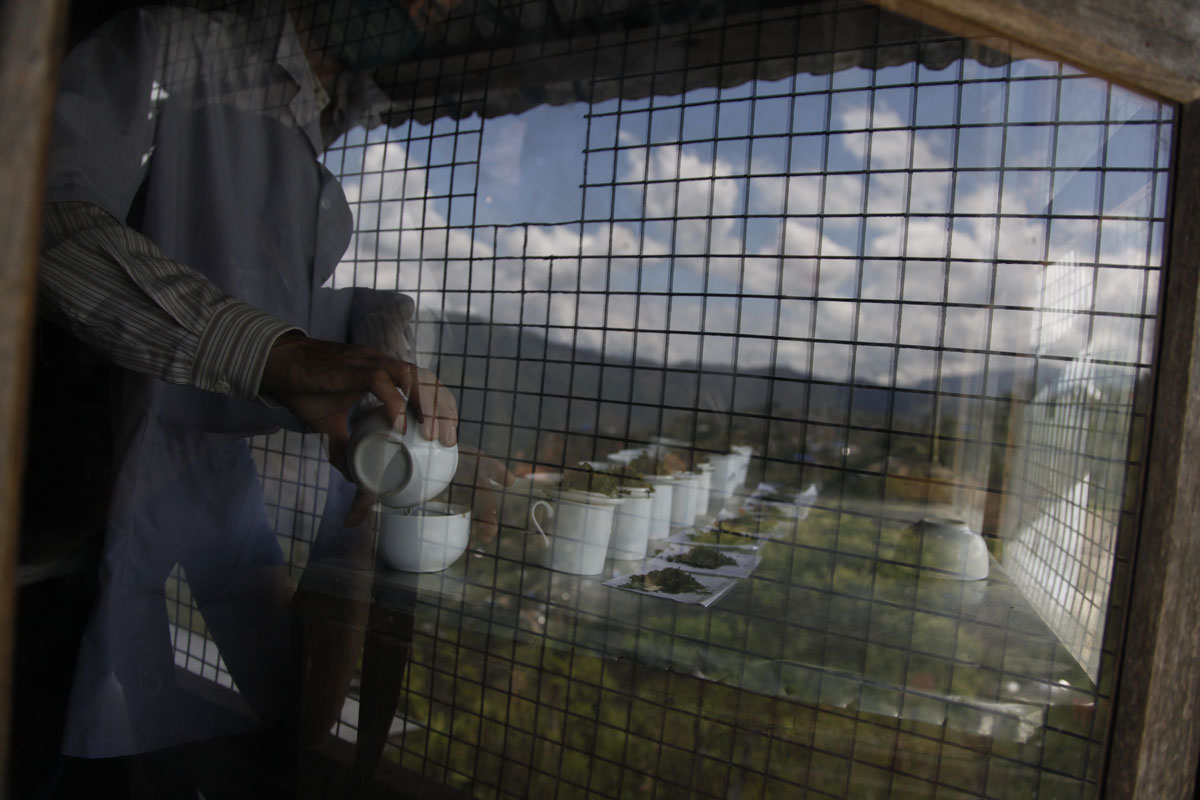The island of Taiwan is famous for its Oolong teas. They are oxidised to varying degrees and so develop notes that are more vegetal, or on the contrary, more woody. But these teas, which are also known as blue-green teas, do not represent all of the island’s production. There are also green teas and black teas in Taiwan. Regarding the black teas, here is the building where they were processed, at the time of the occupation and when the Japanese were toying with the idea of making Taiwan one of the world’s biggest producers of black teas. The Japanese wanted to compete with British teas made in India.
ARCHIVE FOR 2017
Nepal is still waiting to be rebuilt
In Nepal, the effects of the earthquake are ongoing. Whole villages are still in ruins, their inhabitants living among these ruins, in houses that have half-collapsed, covered over with a tarpaulin for a roof. In Kathmandu, only the old town was affected. There too, there is no sign of reconstruction. A significant number of the capital’s most beautiful monuments have been reduced to dust, and surrounding houses are in a fragile state. While they await repair, they are being propped up by wooden struts, and signs warn people of the risk of collapsing buildings.
Analyzing the wet leaves
When we taste tea, we pay attention to the leaves at every stage. Of course we are interested in the liquor, which we drink, and we also examine the dried leaves: are they whole or broken? Do they contain buds? What colour are the leaves? Are they all similar? Lastly, the infused leaves can tell us a great deal. We smell them, and press them, as Nirananda Acharya is doing here. Often, the smell of the wet leaves can tell us as much about the tea as drinking the liquor itself. The wet leaves inform us about every stage of the processing. We can pick up on the slightest defect, or on the contrary, we can revel in the wonderful bouquet.
Your teapot needs to air too
For those who are getting ready for their holiday, here is some essential advice on your teapot. If you don’t use it for several days, rinse it out with clean water. Never use detergent, of course. Then place it either way up, it doesn’t matter, but without its lid. The air needs to circulate inside it while you’re away. The teapot needs to dry properly, and not remain damp inside. So just place the lid alongside the teapot, or on the top, but the wrong way around. This means you will find your teapot in excellent condition when you return, ready to brew teas at their best!
Preparing for a successful tasting
The Tea School provides training for Palais des Thés employees to ensure their knowledge and expertise is as good as possible. The school also offers courses for members of the public who want to learn about tea and the best way to drink it, and lastly, it trains food professionals. Recently, these have included teams from the Ritz and Bristol hotels in Paris. In this way, maîtres d’hôtel and sommeliers learn about tea, and many are passionate about the subject. Some have built up their knowledge over a long period, while others are thirsty to learn. This is how we prepare the tasting session – this one took place at the Institut Paul Bocuse a few days ago. There are three tasting sets per participant, to taste three premium teas (Jade Oolong by Mrs Ming, Dong Ding Antique, Pu Erh Menghai XO Milésime 1999). In addition, five teas were infused in cold water and served in stemmed glasses: Ryogôchi Saemidori Shicnha Ichibancha 2017, Kagoshima Benifuki by Mr Kumada, Népal Kanchenjunga Gold Récolte Tardive, Satemwa Dark and Enjin Jukro from Korea. The leaves are examined in little dishes. However, we do not label the teas – I like people to taste them blind and if possible I hide the tea colour, without saying what type of tea it is, so that students can keep their minds clear and not form preconceptions. This is a refined approach to tea. It is about awakening the senses, describing a texture and a flavour, and recognising aromas. My dream is to initiate new people into this vocation so that one day they can become a tea sommelier!
Tension in Darjeeling
For the past three weeks, tensions have been running high in Darjeeling. Businesses, roads and plantations have shut down, tourists have been asked to leave. The reason for the general strike is that the people of Nepali origin, who make up the majority of the population, are being forced to learn Bengali at school – a language from a region they hate. Darjeeling is part of West Bengal, which is resented by the independence movement, who want to create a new state within the Indian Union: Gorkhaland. This issue has been boiling over for the past 30 years, and demonstrations are frequent. With a three-week strike taking place during the summer harvest season, the plantations will struggle to cope this year. This is on top of the 30% decline in volumes harvested due to the dry spring this year.
New-season Chinese teas: an incomparable variety
Tea has been consumed in China for more than 3,000 years, and it is only in this country that we find such a rich variety. It produces all colours of tea: white, green, blue-green, yellow, black and dark. In China we find a unique culture of terroir: one village might have been following a very specific tradition of tea shaping for centuries, while in the next village the leaves could be processed in a completely different way. Nowhere else in the world do we find such a variety of practices. This photo shows my 2017 selection of “new-season” Chinese green teas, some of which were harvested before the Qingming festival. From left to right: Pre Qing Ming Bi Luo Chun, Pre Qing Ming Long Jing, Pre Qing Ming Bourgeons de Jade, Pre Qing Ming Lu An Gua Pian, Pre Qing Ming Anji Bai Cha, Bai Mao Hou, Mao Feng Premium, Yong Xi Huo Qing, Huang Shan Mao Feng. It goes without saying that just as the size, shape and colour of the leaves differ so much, the tasting experience is equally varied among these premium teas.
Ecology: what if we take matters into our own hands?
Ecology is rarely a priority for politicians, but why should we expect them to do everything? Why complain that the environment does not play a big enough role in political debate or manifestos, and wait passively for things to change at the next elections? We expect politicians to do everything. What if we took matters into our own hands? In terms of the environment, our power is not limited to ticking a box on a ballot paper. Our purse, for example, represents a lot of power. If we don’t want a plastic bag, we can refuse one. If we don’t want a whole heap of packaging, we can refuse it. If we don’t want animal cruelty, we can start by eating less meat. Eat it a bit less often, and choose meat from animals that have enjoyed a healthy life, out of doors, raised by good farmers who care for their welfare. Or fish caught by conscientious fisherman, and not by trawlers that scoop up everything in their path and decimate the seas. We can buy fresh, seasonal produce; we can buy local whenever possible. We can buy from the producers themselves rather than from supermarkets. Each one of us has the power to help limit the often disastrous consequences of the food industry, which produces on such a large scale. We can avoid ready meals. We can stop buying pointless chemical products: people criticise farmer’ practices when they cover their own gardens with weed killers and fertilisers. We can recycle, we can reduce our consumption. We can compost, we can grow our own food. We can think as a community. We can help each other, give to others. We can upcycle, we can cycle. We can cook, we can keep animals. We can walk.
Good Nepalese teas annoy Darjeeling producers
Indian tea producers are complaining about unfair competition from Nepal, and I don’t buy their argument. They don’t complain that Japan, China and other countries produce tea, they have to deal with it. But with Nepal, India is behaving as if it could put pressure on this country, which has no access to the sea, to impose conditions, make it pay taxes, and in this way prevent it from exporting its tea. Nepal is a particularly poor country which buys most of its consumer goods from India, and is therefore dependant on India to a certain extent. India is using this to its advantage. Among the complaints levelled by Indian producers, particularly those in Darjeeling, is that Nepalese teas create unfair competition for Darjeelings. But to my mind, Nepalese teas have their own character, they are recognisable, they don’t need the prestige of Darjeeling to enjoy success. They offer excellent value for money, much better than Darjeelings, and it is most likely this which is irritating India most. Lastly, and this is a positive thing, Nepal is starting to build a good reputation for itself in tea. This is a great improvement on the dodgy dealings that have been going on for years with certain unscrupulous Darjeeling gardens, who bring in fresh tea leaves from Nepal at low prices, process them in India, and then pass them off as pure Darjeelings!
Waiting for the tea tasting to begin
The preparation for a tasting is a special moment. I watch what my host is doing, each precise movement. The leaves are presented on a base that allows you to see them, then the tea is weighed out to the nearest tenth of a gram, before being steeped for a specific time. Each tea must be brewed in exactly the same conditions. Before tasting the tea, while the liquors cool a little, I like to take a few photos of the room itself, of people going about their activities, their faces, or the landscape. I often make use of windows. The reflections can be unexpected. I take photos through the window, while others look on, puzzled. Here, at the Kanchenjunga Tea Estate, through the grille-covered window, you can see the tea being prepared against a background of mountains and the tea garden.

